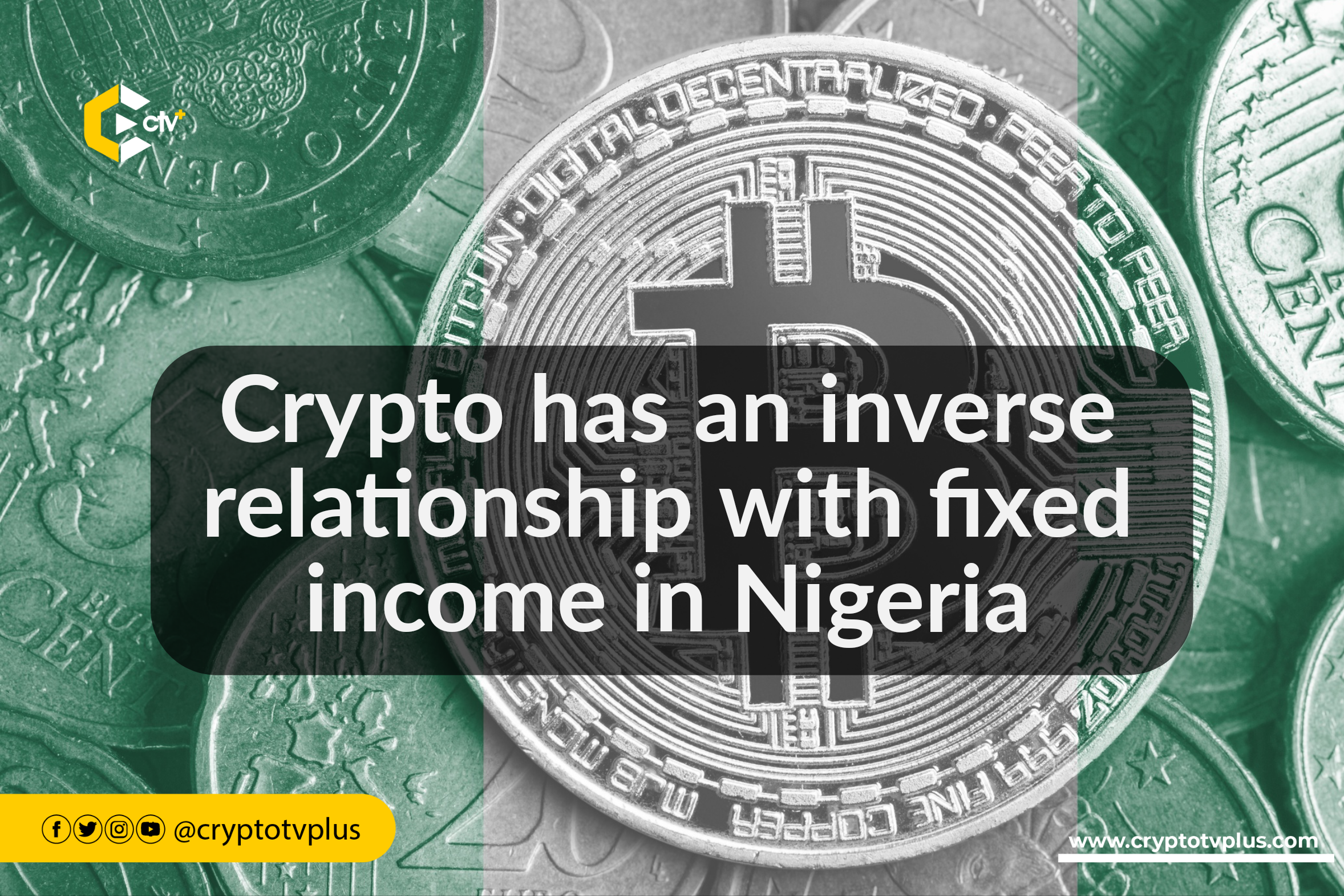News
Crypto has an inverse relationship with fixed income in Nigeria

Following the growing interest and usage of cryptocurrencies in Nigeria, the Central Bank released a report that revealed a reverse relationship between the use of cryptocurrencies over the years and fixed income in the nation.
Fixed income refers to a type of investment security that pays investors fixed interest or dividend payments until their maturity date. At maturity, investors return their principal investment.
Fixed-income investing is generally considered a conservative strategy where returns are generated from low-risk securities that pay predictable interest. In this case, government bonds are taken as assets.
The report indicates that, on average, an increase in cryptocurrency market trading volume corresponds to a decrease in the bid-to-cover ratio of the 30-year bond by approximately 0.06 percent.
Therefore, when there is more interest in crypto among Nigerians, the impact on government bonds is negative, but with a minimal value of 0.06%.
The CBN added that this inverse correlation aligns seamlessly with trend analysis that had previously illustrated the relationship between these asset classes. Notably, when Bitcoin experiences substantial spikes in trade volume, it is accompanied by significant declines in the bid-to-cover ratio of the 30-year bond.
These results align with previous expectations and underscore the significance of this discovery in the context of the subject matter.
Further findings with Granger test
The apex bank also stated that to ensure the robustness of these findings, researchers conducted Granger causality tests. The results of the test showed that there is no clear cause-and-effect relationship between cryptocurrency trading and “fixed income.”
In simpler terms, when people buy or sell cryptocurrencies, it doesn’t seem to directly affect the fixed-income market.
To save the situation
To encourage citizens to focus more on fixed-income investments rather than cryptocurrencies, the CBN suggested that countries like Nigeria, which may not be very cryptocurrency-friendly but are not banning them outright, should offer enhanced incentive.
These includes increased financial rewards or benefits, to individuals who invest in specific savings plans known as ‘fixed income securities.’
Offering these better rewards on savings plans could make people less interested in putting their money into cryptocurrencies. The impact is that this might help make the country’s economy more stable.
Due to the inverse correlation between cryptocurrencies and fixed-income assets, the course of action for the CBN and the Debt Management Office (DMO) becomes evident.
It is said that the two national bodies would explore avenues to deepen the fixed-income market by introducing more instruments and promoting investment within this segment.
Implementing such measures could contribute to a less volatile and relatively more stable Nigerian economy, aligning with the global trend of harmonizing cryptocurrency regulations with established financial systems, according to the CBN.
Read also; CBN argues for interest-bearing eNaira deposits to boost financial inclusion
























